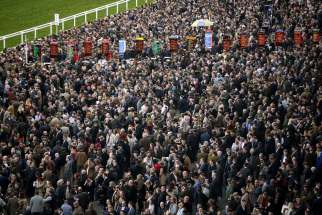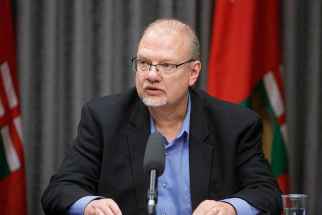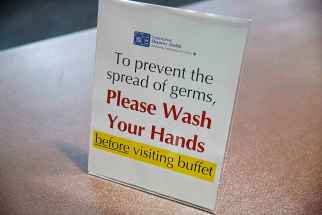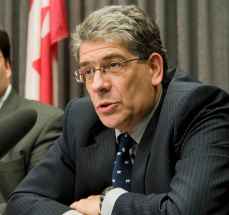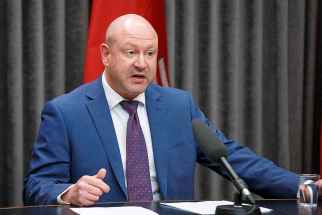Lesson of past lost in hesitation
Read this article for free:
or
Already have an account? Log in here »
To continue reading, please subscribe:
Monthly Digital Subscription
$0 for the first 4 weeks*
- Enjoy unlimited reading on winnipegfreepress.com
- Read the E-Edition, our digital replica newspaper
- Access News Break, our award-winning app
- Play interactive puzzles
*No charge for 4 weeks then price increases to the regular rate of $19.00 plus GST every four weeks. Offer available to new and qualified returning subscribers only. Cancel any time.
Monthly Digital Subscription
$4.75/week*
- Enjoy unlimited reading on winnipegfreepress.com
- Read the E-Edition, our digital replica newspaper
- Access News Break, our award-winning app
- Play interactive puzzles
*Billed as $19 plus GST every four weeks. Cancel any time.
To continue reading, please subscribe:
Add Free Press access to your Brandon Sun subscription for only an additional
$1 for the first 4 weeks*
*Your next subscription payment will increase by $1.00 and you will be charged $16.99 plus GST for four weeks. After four weeks, your payment will increase to $23.99 plus GST every four weeks.
Read unlimited articles for free today:
or
Already have an account? Log in here »
Hey there, time traveller!
This article was published 13/03/2020 (2104 days ago), so information in it may no longer be current.
The morning of Friday, March 13, 2020, may go down in history as the day Manitoba, along with other provinces, finally embraced the reality of the COVID-19 crisis. Sort of.
At 11 a.m., chief provincial public health officer Dr. Brent Roussin held a briefing, during which he said it was not necessary to shut down public schools to slow the spread of the novel coronavirus.
Three hours later, Education Minister Kelvin Goertzen confirmed schools would close starting March 23 for a period of three weeks.
What transpired in those three hours?
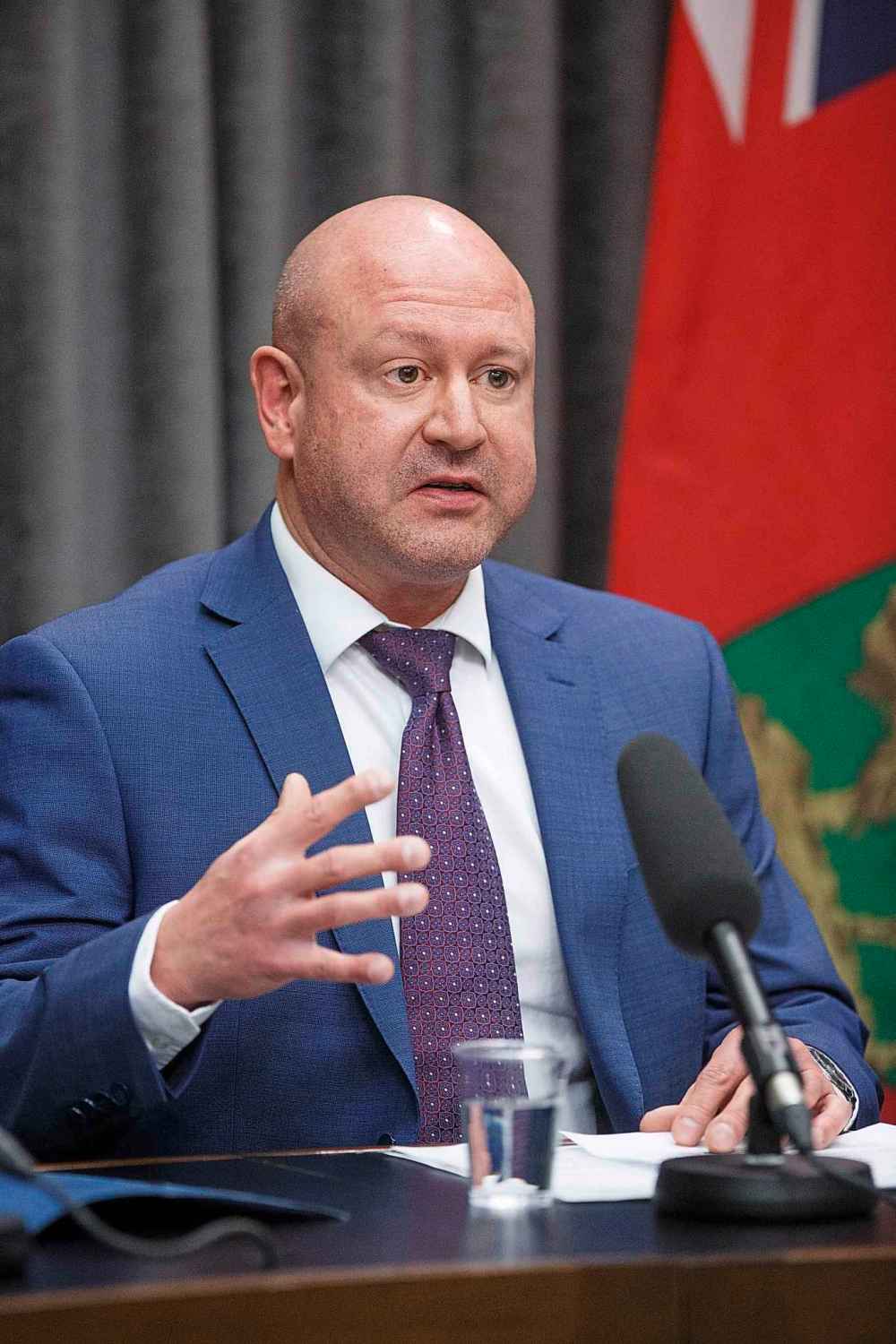
Manitoba Premier Brian Pallister had a conference call with Prime Minister Justin Trudeau and other first ministers. Almost simultaneously with Manitoba’s announcement, Quebec confirmed it would close all schools, daycares, colleges and universities for a period of two weeks. The day before, Ontario closed all publicly-funded schools for three weeks.
Although closing schools is a step in the right direction, neither Roussin nor Pallister could explain why they reversed course in just a few hours, or why similar directives have not been issued to Manitoba daycares, casinos, other public spaces (libraries, pools, community centres) and even possibly Winnipeg Transit.
From a medical point of view, this is tragically uneven public health response.
The infamous 1918-19 Spanish flu taught the world banning large public gatherings can be effective at slowing the spread of a virus, but only if it is done at the earliest possible opportunity. If the public health response is delayed, the damage done increases exponentially.
The New York Times reported Friday confidential details of a briefing from the U.S. Centers for Disease Control and Prevention that described four possible models for the spread of COVID-19. The CDC estimates 160 million to 214 million Americans could be infected, 2.4 million to 21 million people might need hospitalization, and between 200,000 and 1.7 million could die.

The estimates vary so wildly because the public health responses across the country have also varied wildly.
Epidemic experts were clear the only way to keep the illness and death totals at the low end of estimates is to respond quickly and aggressively. That has not been the way governments in the developed world — including Manitoba — have done it.
Steps have been taken, supplies have been stockpiled, contingencies for health-care facilities developed, and emergency measures put in place. However, most countries waited until after COVID-19 appeared within their borders to limit the gathering of large groups of people.
It wasn’t until an NBA player for the Utah Jazz tested positive for COVID-19 on March 11 that everything changed in North America. Within 24 hours, professional basketball, hockey, football and baseball — along with most entertainment events — had postponed or cancelled their seasons.
That delay will push up the estimates of illness and death of epidemiological models.
This is not a new phenomenon. Studies of the 1918 Spanish flu have shown early and aggressive intervention to limit large public gatherings is critical.
One of the most-cited is a 2007 study written by epidemic experts from the National Institutes for Health, Veterans Affairs, and Harvard University, that compared municipal responses to the Spanish flu in Philadelphia and St. Louis.
In short, even before the flu arrived in his city, the mayor of St. Louis instituted banned public gatherings: closing schools, theatres, night clubs, lodges and fraternal halls, dance halls and conventions. St. Louis had the lowest death rate among major U.S. cities.
Philadelphia implemented none of those measures. The city defiantly held a massive parade on Sept. 28, 1918, to raise money for First World War efforts. Subsequent studies found the event, which drew more than 200,000 to the core of the city, led to a dramatic rise in infections. Within two weeks, more than 4,500 people had died. By the end of the flu in 1919, Philadelphia had posted the highest death rate in the U.S.
It is hard to read these studies, and other warnings from top experts, and make sense of local public health policy. We seem to be operating on the belief, somehow, COVID-19 will mostly miss us — as was the case with H1N1 in 2009 and SARS in 2003.
That posture ignores the nature of viruses, in general, and COVID-19, in particular. Manitoba’s elected officials and public health experts are moving in the right direction but they’re not moving far enough, fast enough.
Thankfully, other public institutions are stepping up, as local museums and galleries close to visitors.
We should be thankful leadership is doing something. But by responding too slowly, too cautiously, we’re demonstrating, in the face of this new virus threat, we’ve somehow failed to learn important and painful lessons from 100 years ago.
dan.lett@freepress.mb.ca

Born and raised in and around Toronto, Dan Lett came to Winnipeg in 1986, less than a year out of journalism school with a lifelong dream to be a newspaper reporter.
Our newsroom depends on a growing audience of readers to power our journalism. If you are not a paid reader, please consider becoming a subscriber.
Our newsroom depends on its audience of readers to power our journalism. Thank you for your support.


